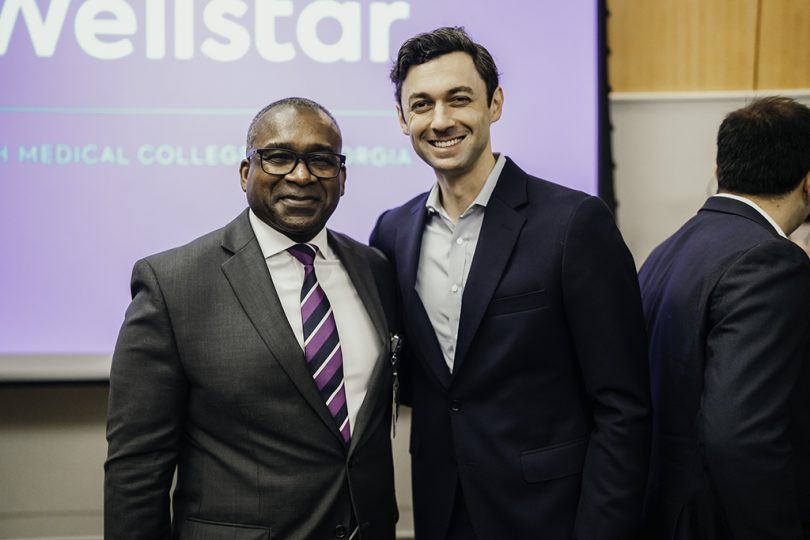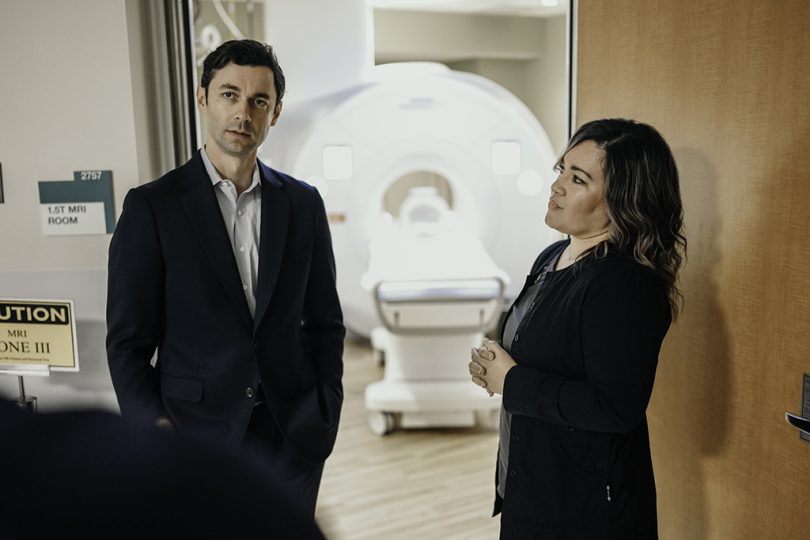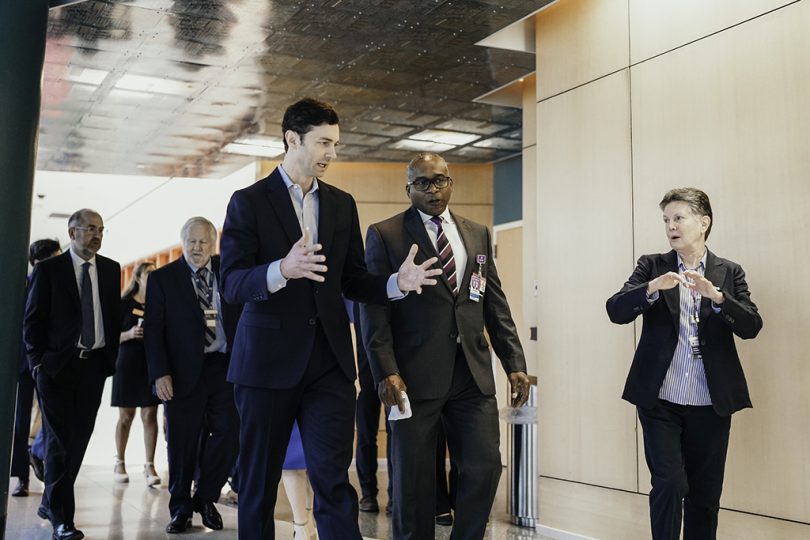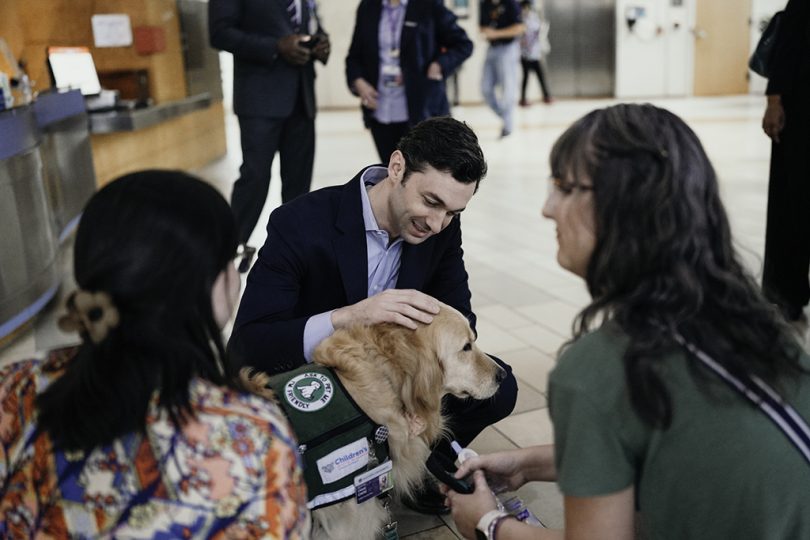Click photo to view a slideshow of Sen. Ossoff’s visit.
U.S. Sen. Jon Ossoff today joined Wellstar and Wellstar MCG Health leadership in cutting the ribbon on two new MRI suites that feature state-of-the-art magnetic resonance imaging (MRI) machines. The machines were purchased with $3.5 million in federal funds that Ossoff secured with bipartisan support from the U.S. Senate in March 2022 for then-Augusta University Medical Center.
The critically needed units are located in newly designed and built MRI suites that are conveniently located between Wellstar MCG Health and the Children’s Hospital of Georgia. The updated technology allows for faster image scanning, better quality scans and better patient access and comfort for adults and children. The new machines and suites replace two aging machines that were located in different parts of the medical campus.
“Senator Ossoff listened to our friends at Augusta University when they shared how adults and children in Augusta and throughout Georgia would benefit from two new, state-of-the-art MRI machines,” said Ralph Turner, President of Wellstar MCG Health. “Today, we celebrate Senator Ossoff’s leadership and work to obtain federal funding that will improve the healthcare experience for people across our great state for years to come.”
“The technology in these new machines is phenomenal and will make a noticeable difference in the care of every patient and physician who uses them,” said Dr. Annette Johnson, Department Chair for Radiology at Wellstar MCG Health, and academic Chair and Professor of Radiology and Imaging at the Medical College of Georgia at Augusta University. “These state-of-the-art machines can compensate for patient breathing and other motion, anticipating the patient’s movement and modifying the scanning techniques to adapt to the motion. This level of sophistication results in a higher quality scan in less time.”
For context, a typical MRI exam consists of five-to-10 individual scans, each of which takes several minutes to complete. If a patient moves during one of the scans, the scan must be repeated. This happens frequently since it’s very hard for people to be perfectly still for very long.
“If everything goes perfectly, the whole exam for a cervical spine MRI, for example, should take 25 minutes. But if the patient moves a little bit during the exam, it may take 10 or 15 additional minutes because scans have to be repeated – which makes the experience more difficult to tolerate as a patient,” Johnson said.
Cutting down the amount of time spent in the machine is a win-win-win. In addition to improving the quality of the scans, it is more comfortable for the patient, reduces waiting times for other patients and allows for more patients to be seen.
“I don’t know if it qualifies as AI, but it’s super-smart technology. It’s motion-sensing and even predicts the patient’s movements. This results in fewer repeat scans, which improves the patient experience and enables more people to receive scans,” Johnson said.
Wellstar MCG Health also has a mobile MRI machine that is located outside of Professional Building One.
“This will be so much better for our patients, being closer to other support services for pediatric patients and wayfinding for all patients. All patients that receive a MRI will now got to the same waiting room, instead of three different waiting rooms,” Johnson said.
The new machine has a stronger gradient within the magnetic field, Johnson said, which translates to higher resolution, thin section imaging. This means, for example, that radiologists and other physicians will be able to see more clearly the margins of a prostate cancer or the valves of the heart.
“You can see fine detail so much better, so you can make more confident diagnostic and treatment decisions,” she said. “You can get literally a half a millimeter slice thickness with this new equipment. That’s huge for us as we help patients and physicians make the best possible decisions for a person’s care.”
The new technology also improves the ability to adapt to individual patient body shape and to better scan patients who have implanted devices such as pacemakers.
Radiology Manager Felicia Ford said she is very happy to begin working with the new machines. She even volunteered to be among the first people to be scanned, just to test it.
She’s looking forward to providing her patients with a better experience in addition to better quality MRI scans.
“It’s really nice,” she said. “I was impressed. It’s comfortable.”






